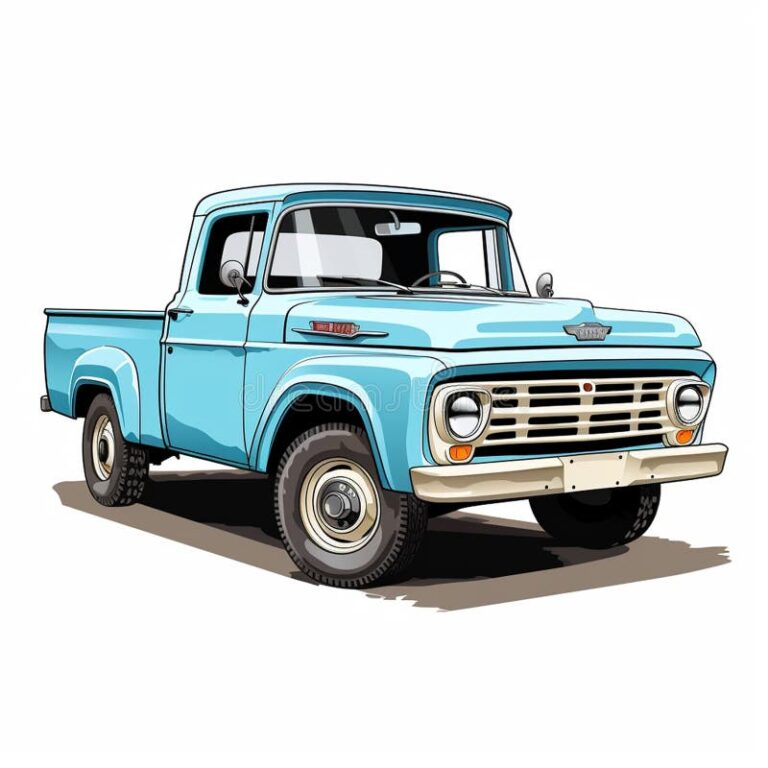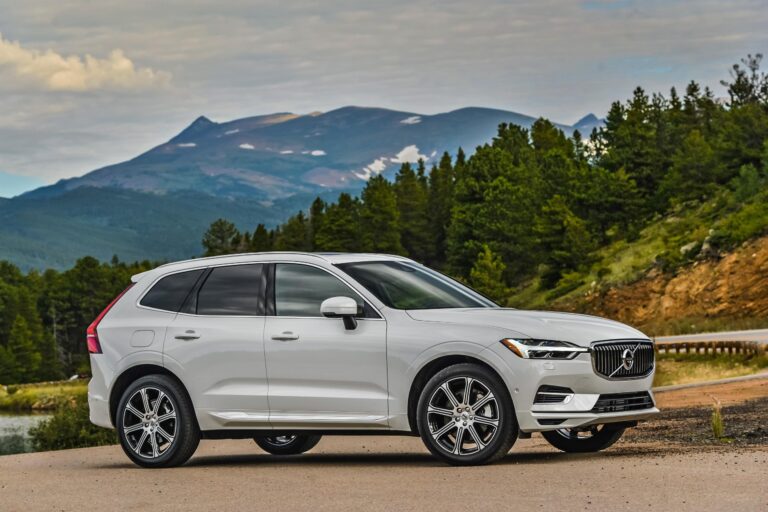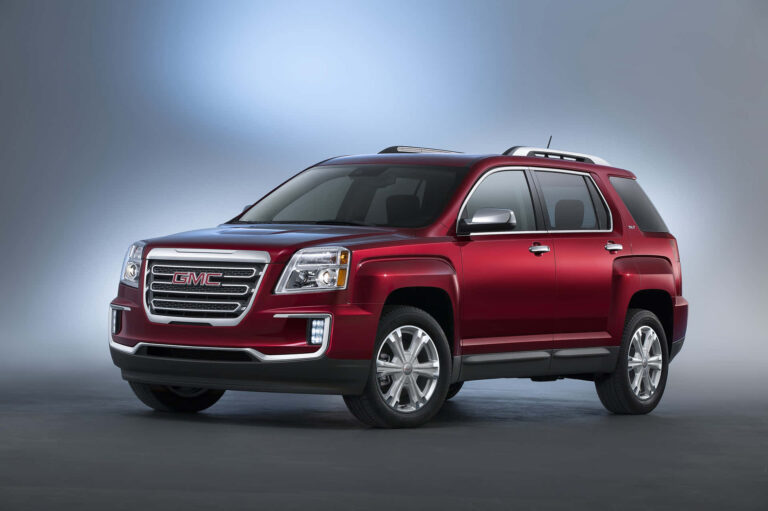12 Valve Cummins Trucks For Sale: Your Comprehensive Guide to Owning a Legend
12 Valve Cummins Trucks For Sale: Your Comprehensive Guide to Owning a Legend cars.truckstrend.com
In the pantheon of diesel engines, few names evoke as much reverence, loyalty, and passion as the 12 Valve Cummins. Produced by Cummins Engine Company and found primarily in Dodge Ram trucks from 1989 to 1998, the 5.9-liter 12 Valve Cummins has cemented its status as an engineering marvel. Renowned for its unparalleled durability, mechanical simplicity, immense power potential, and legendary longevity, these trucks are more than just vehicles; they are workhorses, collector’s items, and symbols of a bygone era of straightforward, robust automotive design.
For anyone seeking a truck that can haul, tow, perform, and last for generations with proper care, a 12 Valve Cummins is often at the top of the list. However, finding the right one requires knowledge, patience, and a keen eye. This comprehensive guide will navigate you through the world of 12 Valve Cummins trucks for sale, offering insights, practical advice, and essential information to help you secure your piece of diesel history.
12 Valve Cummins Trucks For Sale: Your Comprehensive Guide to Owning a Legend
Why Choose a 12 Valve Cummins? The Legend Unpacked
The enduring appeal of the 12 Valve Cummins isn’t just nostalgia; it’s rooted in tangible benefits that make it a compelling choice even decades after its last production.
- Unrivaled Reliability & Durability: At its core, the 12 Valve is a mechanically injected, simple engine. With fewer electronic components than modern diesels, there’s less to go wrong. Its robust cast-iron block, massive connecting rods, and sturdy crankshaft are designed for heavy-duty, continuous operation, often exceeding a million miles with diligent maintenance.
- Immense Power & Torque Potential: Stock 12 Valves produced respectable power for their time (up to 215 hp and 440 lb-ft of torque in later models). However, their true legend lies in their tunability. Simple, inexpensive modifications like turning up the fuel screw on the P7100 injection pump can unleash significant power gains, often pushing well over 400 horsepower without major internal engine work.
- Fuel Economy: For a heavy-duty diesel truck, 12 Valves generally offer decent fuel economy, especially when driven conservatively. Their mechanical nature means they aren’t constantly fighting complex emission systems that can sap power and efficiency.
- Simplicity & Maintainability: Without intricate sensors, complex wiring harnesses, or emission controls like DEF systems and DPFs, 12 Valve Cummins engines are remarkably easy to work on. Many repairs and upgrades can be performed by a competent DIY mechanic, saving significant labor costs. Parts are widely available and often more affordable than those for newer, more complex engines.
- Longevity & Resale Value: These trucks are known for their ability to run for hundreds of thousands of miles. Consequently, they hold their value exceptionally well, often appreciating in value if kept in good condition. They are a sound investment for those looking for a long-term workhorse or a classic truck.

Generations of the 12 Valve: Differentiating the Beasts
The 12 Valve Cummins was produced across two distinct generations of Dodge Ram trucks, each with its unique characteristics and appeal.

First Generation (1989-1993): The "First Gen" Workhorse
- Body Style: Characterized by their iconic square body design, single headlights, and often a rugged, no-nonsense aesthetic.
- Injection Pump: Primarily equipped with the Bosch VE rotary injection pump. While less powerful than the later P7100, the VE pump is incredibly reliable, simple, and capable of supporting moderate power gains. Early 1991.5 models saw the introduction of intercooling, significantly improving performance and longevity.
- Transmissions: Manual options included the Getrag 360 (known for some weaknesses) and later the NV4500. Automatic options included the Torqueflite A518/46RH.
- Appeal: Sought after by purists and those who appreciate the classic truck look. They are often more affordable due to age and lower stock power, making them excellent platforms for restoration or customization.

Second Generation (1994-1998): The "Second Gen" Legend
- Body Style: Introduced the more aerodynamic "big rig" styling with larger headlights and a more modern interior. This generation is arguably the most popular and recognizable.
- Injection Pump: The star of this generation is the Bosch P7100 inline injection pump (often just called "P-pump"). This mechanical marvel is revered for its robust design, incredible tunability, and ability to deliver massive amounts of fuel, supporting extreme horsepower figures. Early 1994 models had 160hp, while 1996-1998 models with the P-pump offered 215hp (manual transmission) or 180hp (automatic).
- Transmissions: Manual options were exclusively the NV4500 (5-speed) or the NV5600 (6-speed, though rare in 12-valve form, mostly found in late ’98 24V trucks). Automatic options were the 47RH (1994-1995) and the 47RE (1996-1998), which is electronically controlled.
- Appeal: The most highly sought-after 12 Valves due to the legendary P7100 pump, more modern styling, and generally better creature comforts. They command higher prices, especially for well-maintained examples.
What to Look For When Buying a 12 Valve Cummins
Purchasing a used truck, especially one that’s decades old, requires a thorough inspection. For a 12 Valve Cummins, here’s a detailed checklist:
-
Engine Health (The Heartbeat):
- Blow-by Test: Remove the oil fill cap while the engine is running and warm. A little smoke is normal, but excessive pressure (cap "dancing" or blowing off) indicates worn piston rings or cylinder walls.
- Cold Start: Listen for excessive knocking, rattling, or difficulty starting. Blue smoke at start-up can indicate worn valve seals or turbo issues; black smoke is often just rich fueling.
- Oil Leaks: Check for leaks around the Killer Dowel Pin (KDP) cover, front and rear main seals, oil pan, and vacuum pump.
- Injection Pump (VE or P7100): Look for fuel leaks. On P-pumps, check for leaks around the delivery valves. Listen for unusual noises.
- Turbocharger: Check for excessive shaft play by trying to move the compressor wheel. Look for oil in the intake or exhaust.
- Coolant System: Check for leaks, rust in the coolant, or a milky appearance (head gasket issue).
- Lift Pump: Ensure it’s delivering adequate fuel pressure (especially important for P-pump trucks).
-
Transmission (The Drivetrain):
- Automatic (47RH/RE): Check fluid color and smell (should be red, not burnt). Test all gears, including overdrive. Listen for slipping or harsh shifts. Common issues include worn overdrive bands and governor pressure sensor/solenoid failures.
- Manual (Getrag/NV4500): Test the clutch engagement. Shift through all gears, listening for grinding, especially from 2nd to 3rd (NV4500 common issue). Check for excessive shifter slop. Ensure the overdrive works.
-
Drivetrain & Chassis (The Foundation):
- Rust: Critically inspect the frame, cab corners, rocker panels, fenders, and bed for rust. Frame rust is a major concern.
- Suspension: Check leaf springs for cracks, U-joints for play, and shocks for leaks. Look for worn ball joints and tie rod ends.
- Steering: Check for excessive play in the steering wheel, which can indicate a worn steering box, track bar, or tie rods. The "Dodge death wobble" is a known issue, often solvable but indicates worn components.
- Brakes: Test pedal feel and stopping power. Check rotors and pads.
- Tires: Inspect tread wear and overall condition.
-
Body & Interior:
- Accident History: Look for mismatched paint, wavy body panels, or poor panel gaps.
- Overall Condition: Assess the general wear and tear, dents, and dings.
- Interior: Check for torn seats, non-functional gauges, or electrical issues (windows, lights, HVAC).
-
Paperwork: Always ensure the title is clean and matches the VIN. Ask for service records if available.
Common Modifications & Their Impact
Many 12 Valve Cummins trucks on the market will have been modified. While some mods are beneficial, others can indicate hard use or potential issues.
- Fuel System Upgrades: Larger injectors, delivery valves, performance lift pumps, and modified injection pumps are common for power gains. Be cautious of overly aggressive tunes on a stock transmission.
- Turbo Upgrades: Larger turbos can boost power but may increase turbo lag.
- Transmission Upgrades: Built automatic transmissions are a good sign, indicating the owner invested in reliability to handle more power. Aftermarket clutches are common for manuals.
- Lift Kits/Suspension: Can impact ride quality, handling, and tire wear. Ensure the installation was done professionally.
- Exhaust: Larger diameter exhaust systems are common for improved flow and sound.
- Be Wary: Heavily modified trucks used for sled pulling or drag racing may have experienced extreme stress. Ask for documentation of work performed and assess the quality of the modifications.
Where to Find 12 Valve Cummins Trucks For Sale
- Online Marketplaces: Facebook Marketplace, Craigslist, and eBay Motors are prime hunting grounds. Be prepared to sift through many listings and travel for the right truck.
- Specialized Forums & Enthusiast Groups: Websites like Competition Diesel, Cummins Forum, and dedicated Facebook groups for 12 Valve owners often have "for sale" sections where you’ll find more knowledgeable sellers and better-maintained trucks.
- Local Dealerships: Less common for older 12 Valves, but some independent dealerships or those specializing in used trucks might have them.
- Word-of-Mouth: Let friends, family, and local mechanics know you’re looking.
- Auctions: Government or public auctions can yield good deals, but require a higher level of inspection expertise as "as-is" sales are common.
Pricing Your Dream 12 Valve
The price of a 12 Valve Cummins truck varies wildly based on several factors:
- Condition: Rust-free, mechanically sound trucks command a premium.
- Mileage: While these engines last, lower mileage examples are more valuable.
- Generation: Second-generation P-pump trucks typically fetch higher prices.
- Transmission: Manual transmissions (especially NV4500) are often more desirable and valuable than automatics.
- Modifications: Well-chosen, quality modifications can increase value, while questionable or extreme mods might deter buyers.
- Location: Prices can fluctuate regionally.
Here’s a general price guide for 12 Valve Cummins trucks for sale:
| Year Range (Gen) | Condition | Mileage (Approx) | Transmission | Price Range ($) | Key Features/Notes |
|---|---|---|---|---|---|
| 1989-1993 (1st Gen) | Project/Parts | 250,000+ | Any | $3,000 – $7,000 | Significant rust, major mechanical issues, non-running. For experienced mechanics or parts harvesting. |
| 1989-1993 (1st Gen) | Fair/Driver | 180,000 – 250,000 | Manual/Auto | $7,000 – $12,000 | Runs and drives, but may have cosmetic flaws, minor leaks, some maintenance needs. Good entry point for DIY. |
| 1989-1993 (1st Gen) | Good/Well-Maintained | 150,000 – 200,000 | Manual/Auto | $12,000 – $18,000 | Solid runner, minimal rust, well-maintained engine. Might have minor mods. Ready for daily use or light work. |
| 1994-1998 (2nd Gen) | Project/Parts | 300,000+ | Any | $4,000 – $9,000 | Heavy rust, blown transmission, major engine issues. Requires extensive work or is a parts donor. |
| 1994-1998 (2nd Gen) | Fair/Driver | 200,000 – 300,000 | Manual/Auto | $9,000 – $16,000 | Runs and drives, but often has cosmetic issues, rust on fenders/rockers, typical wear items needing attention. A solid base for improvement. |
| 1994-1998 (2nd Gen) | Good/Well-Maintained | 150,000 – 250,000 | Manual/Auto | $16,000 – $25,000 | Solid truck with good paint, minimal rust, strong engine and transmission. May have tasteful, common performance upgrades (fuel plate, injectors). Reliable daily driver or work truck. |
| 1994-1998 (2nd Gen) | Excellent/Low Mileage/Restored | Under 150,000 | Manual | $25,000 – $50,000+ | Rare find. Pristine condition, low miles, rust-free, meticulously maintained or professionally restored. Highly sought after by collectors and enthusiasts. Manual transmission examples command top dollar. |
Note: These are general ranges and can fluctuate significantly based on specific condition, region, demand, and unique features.
Frequently Asked Questions (FAQ) about 12 Valve Cummins Trucks
Q: What’s the "KDP" and why is it important?
A: The "Killer Dowel Pin" is a steel dowel pin pressed into the timing gear case that aligns the timing cover. Over time, vibrations can cause it to back out, potentially falling into the timing gears and causing catastrophic engine damage. It’s a critical preventative maintenance item, especially on 2nd Gen trucks, and should be "tabbed" or secured.
Q: Which is better, a VE or P-pump?
A: It depends on your goals. The VE pump (1st Gen) is simpler, more fuel-efficient, and very reliable. It’s great for mild power gains and everyday use. The P7100 pump (2nd Gen) is legendary for its ability to support massive horsepower numbers with relatively simple modifications, making it preferred by performance enthusiasts.
Q: Are 12 Valves good daily drivers?
A: Absolutely. While they lack the modern comforts and quietness of newer trucks, their reliability, relatively good fuel economy, and ease of maintenance make them excellent daily drivers for those who appreciate their mechanical nature.
Q: What’s the average lifespan of a 12 Valve Cummins engine?
A: With proper maintenance, these engines are known to last 500,000 miles or more, with many examples exceeding a million miles. The truck around the engine (body, transmission, suspension) will likely wear out long before the engine does.
Q: Can I run biodiesel in a 12 Valve?
A: While 12 Valves can tolerate some biodiesel (e.g., B5 or B20), higher concentrations can degrade fuel lines and seals over time, especially with older components. It’s generally recommended to stick to conventional diesel fuel unless specific fuel system upgrades have been made.
Q: What’s the difference between the 47RH and 47RE automatic transmissions?
A: Both are 4-speed automatics. The 47RH (1994-1995) is hydraulically governed with an electronically controlled overdrive and lock-up torque converter. The 47RE (1996-1998) is fully electronic, meaning both the overdrive and lock-up are controlled by the truck’s computer. The 47RE offers more precise control but introduces more electronic components. Both often require upgrades to handle increased engine power.
Conclusion
The 12 Valve Cummins truck is more than just a vehicle; it’s a testament to robust engineering, mechanical simplicity, and enduring power. Whether you’re a seasoned diesel enthusiast, a professional needing a reliable workhorse, or simply someone who appreciates a truck built to last, a 12 Valve offers an unparalleled blend of performance, durability, and character.
Finding the right 12 Valve Cummins for sale requires diligence, a thorough inspection, and a clear understanding of its unique strengths and potential weaknesses. By following this guide, you’ll be well-equipped to navigate the market, identify a solid candidate, and ultimately drive away with a piece of automotive history that will serve you faithfully for years to come. Investing in a 12 Valve isn’t just buying a truck; it’s joining a legacy.






